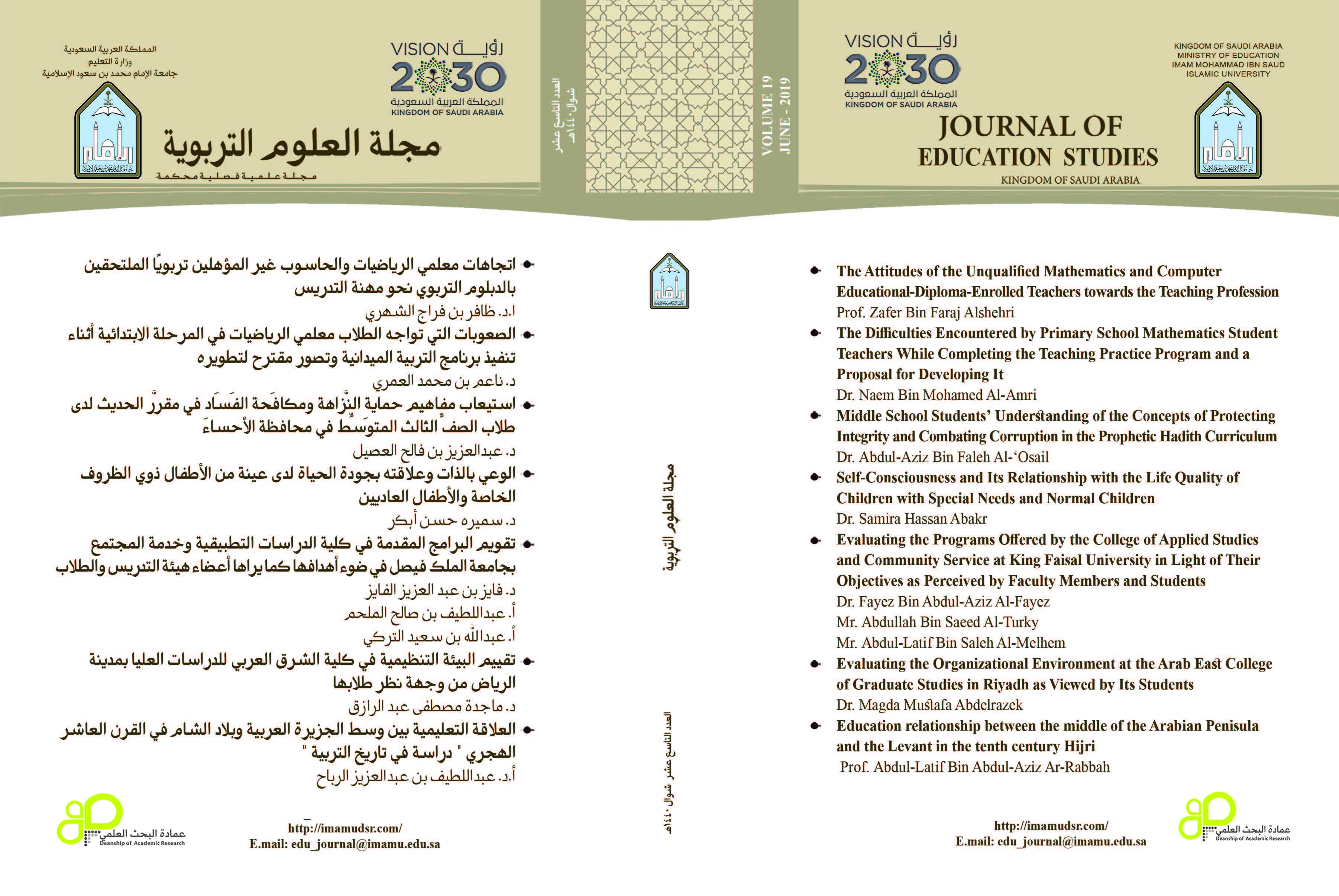Self-Consciousness and Its Relationship with the Life Quality of Children with Special Needs and Normal Children
Keywords:
Self - Consciousness - Life Quality - Special EducationAbstract
This study aimed at exploring the self-consciousness of children with special needs and its relationship with their perceived life quality. The sample of the study consisted of 39 female primary, middle and secondary school children aged 8-18 years old (M = 12.76; SD = 2.7); 14 of them were children with special needs whereas 25 were normal children. To test the hypotheses of the study, the researcher used Jaradat’s (2010) Arabic translated version of Fenigstein et al.’s (1975) Self-Consciousness Scale, and Aljeesh et al.’s Children Quality of Life Scale. In the clinical study, the researcher used Bellak’s (1449) Children's Apperception Test. The results of the data analysis showed no statistically significant relationship between the self-consciousness of both the children with special needs and normal children with their perceived life quality. On the other hand, statistically significant differences were found between the mean scores of the children with special needs and normal children on the Self-Consciousness Scale, and the Quality of Life Scale in favour of the normal children. The results of the Children's Apperception Test showed that the children with special needs suffer from symptoms indicating their low self-consciousness and perceived life quality levels. The study has provided some recommendations in light of these results.




